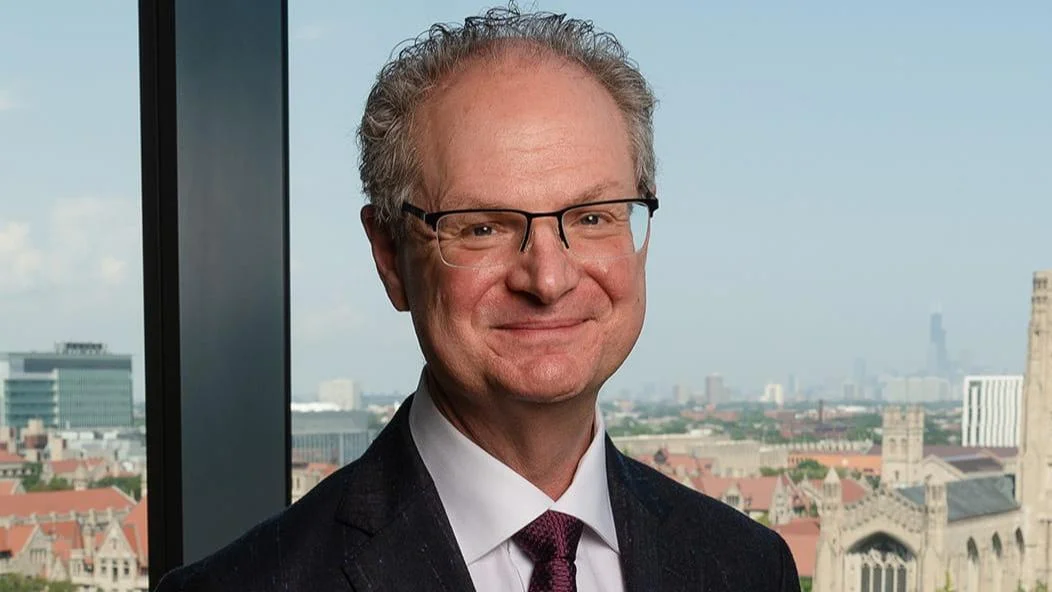For over a century, the University of Chicago has played a significant role in health care and biomedical research on Chicago's South Side. Through its UChicago Medicine health system and Biological Sciences Division, the university addresses medical challenges while training future physicians, scientists, and leaders.
Recently, UChicago introduced two master's programs aimed at preparing students for careers in health: the Master of Science in Biomedical Sciences (BMS) and the Master of Public Health (MPH). The BMS program offers comprehensive training in biomedicine for careers in health care, research, and related fields. The MPH program focuses on integrating scientific methods with community partnership to address population health issues. Both programs provide instruction from established UChicago faculty as well as professional support for students' academic and career development.
Krish Shah, a student in the BMS program who will begin studies at Stanford Medical School, highlighted his experience working with Asst. Prof. Michael Drazer: “That level of freedom and guidance was really inspiring for me.” Shah added that Drazer was proactive in supporting his medical school applications: “He was incredibly proactive and fostered a safe space to be vulnerable and ask personal questions.”
The programs emphasize both academic foundations and practical experiences. Prof. Vineet Arora, founding director of the BMS program and Vice Dean of Education in the Biological Sciences Division, said: “The goal is to really help people grow, evolve or transform their career into a career in biomedicine by providing them with the scaffolding of knowledge, the lingo they need and the real-world experience that differentiates somebody as knowing their stuff in this field.”
The BMS degree is structured as a one-year full-time program focused on applying biomedical knowledge to health care innovation. Students select electives across disciplines such as science communication or data science and complete independent projects tailored to their interests.
Eunkyung Lee completed the BMS program after coming from Korea. She noted: “The program equipped me with knowledge that I can apply directly to the industry,” referencing her new role at Monopar Therapeutics. Lee also commented on tackling real-world problems during her studies: “I wouldn’t say it was easy... but to be able to learn while tackling a real-world health care problem was such a valuable experience of me getting outside my comfort zone.”
Graduates pursue diverse paths including medicine, research, biotech industries or further study; about 35% apply for advanced degrees after graduation.
Nicolas Lopez graduated from BMS in 2024 before working as a consultant while applying to medical schools. He said: “In general, the program really set me up well to go to medical school and to do what I’m doing now—to have a plan that wasn’t medical school.”
A joint BMS/MBA degree launched with Booth School of Business combines biomedical science education with business leadership training for roles spanning biotech innovation or policy work.
Prof. Samuel Volchenboum described this interdisciplinary approach: “Here we have an incredible opportunity for students to leverage both the BSD’s experience in educating the next generation of leaders in health care and the Booth’s School of Business’s long track record educating and training business students.”
UChicago’s MPH is an accredited full- or part-time degree emphasizing public health research methods alongside core coursework such as epidemiology or social inequality. Students choose among concentrations like global health or data science; all complete practicum experiences relevant to public health practice.
Sara Booth earned her MPH at UChicago before becoming a biostatistician at Beth Israel Deaconess Medical Center. She stated: “It essentially transformed my career trajectory in a really big way... They were very intentional on what they were going to teach you in the program.” Booth also valued learning skills beyond statistics—such as designing intervention programs—which she said made her education more well-rounded.
Diane Lauderdale chairs UChicago’s Department of Public Health Sciences. She explained: “This is a great first degree for people who are interested in going on to conduct research... But it’s also for people who then directly want to go out and help with public health programs or provide support for community and public health research projects based at a university.”
Graduates find employment across sectors including hospitals, NGOs, government agencies or academia.
Booth reflected on strong connections between students and practitioners brought into classes: “They brought in so many people working in the field... We could just ask them questions... which was super helpful just to get a sense of: Where do you want to go from here?”

